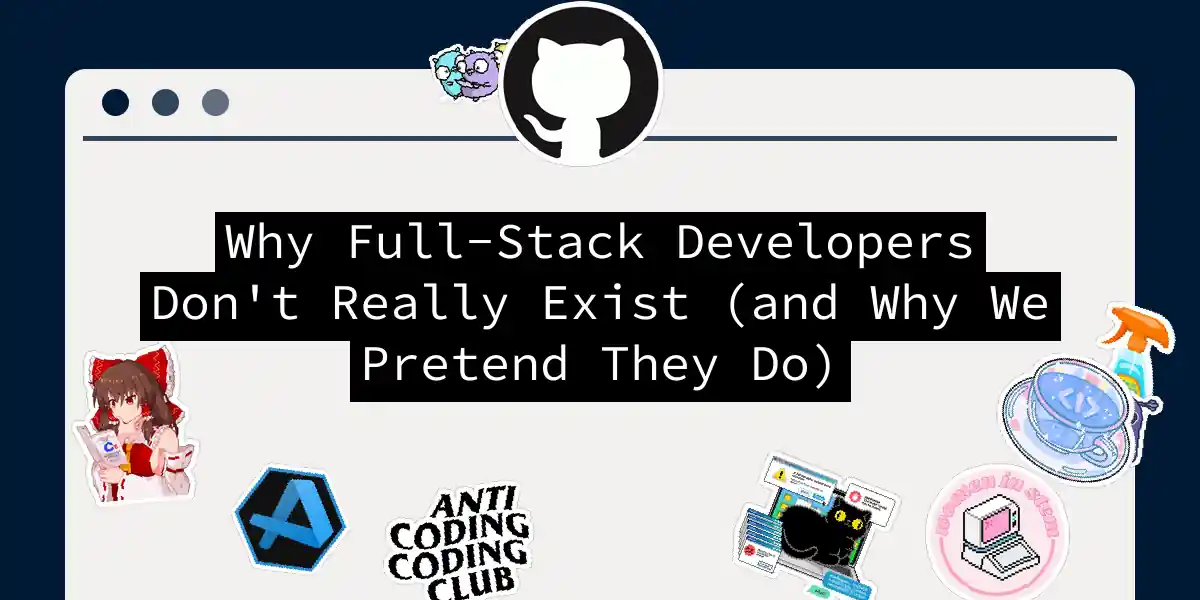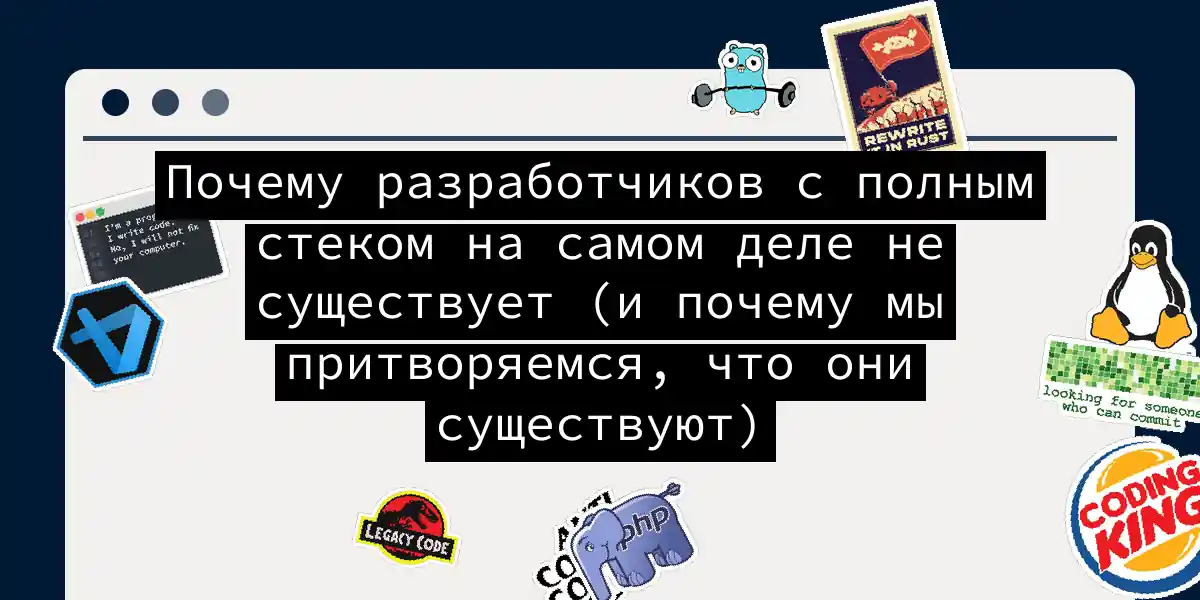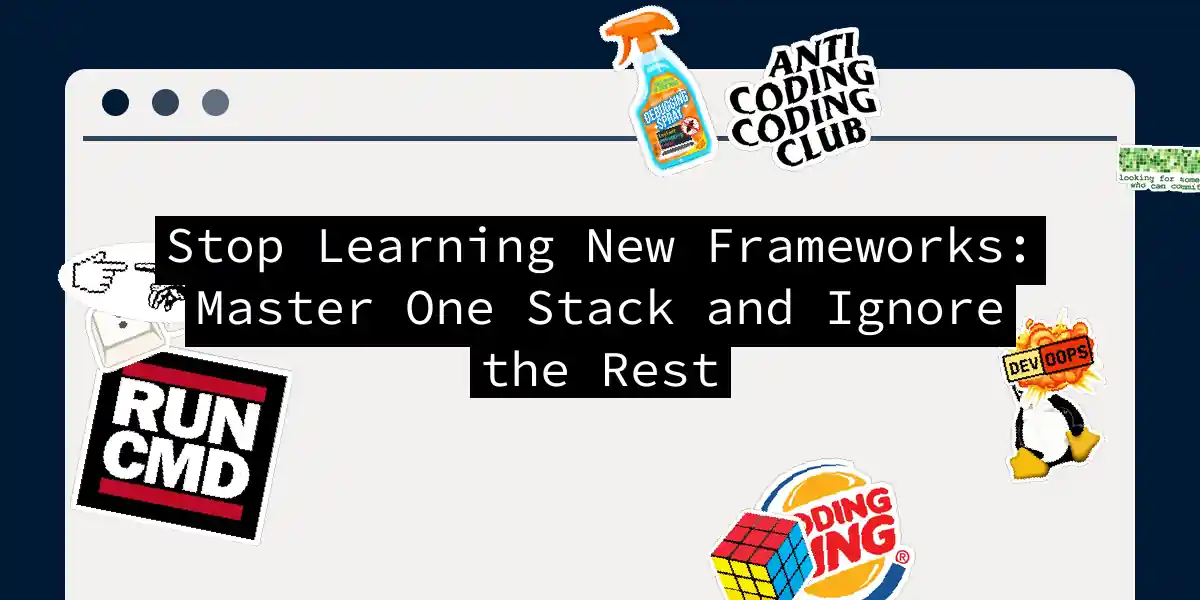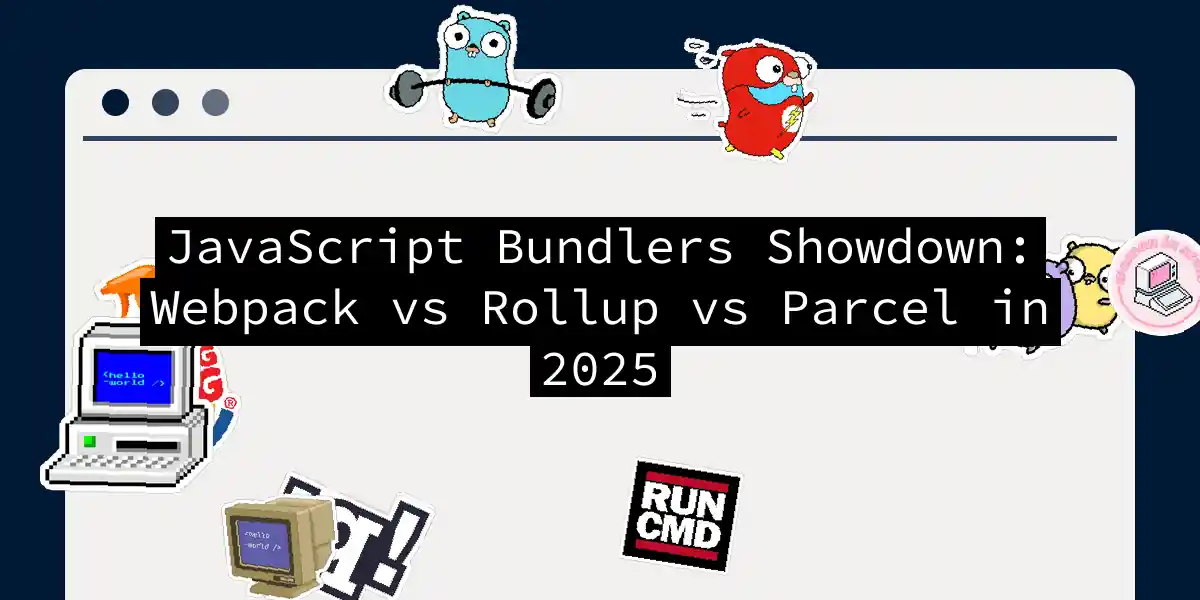
Why Full-Stack Developers Don't Really Exist (and Why We Pretend They Do)
The Job Posting That Started It All You’ve seen it a thousand times. A company posts a job listing with the following requirements: “We’re looking for an experienced Full-Stack Developer! You should be proficient in React, Vue, Angular, Node.js, Python, Java, AWS, Docker, Kubernetes, PostgreSQL, MongoDB, Redis, GraphQL, REST APIs, microservices architecture, DevOps practices, and ideally have some experience with machine learning. Must be comfortable working independently and leading a team....



